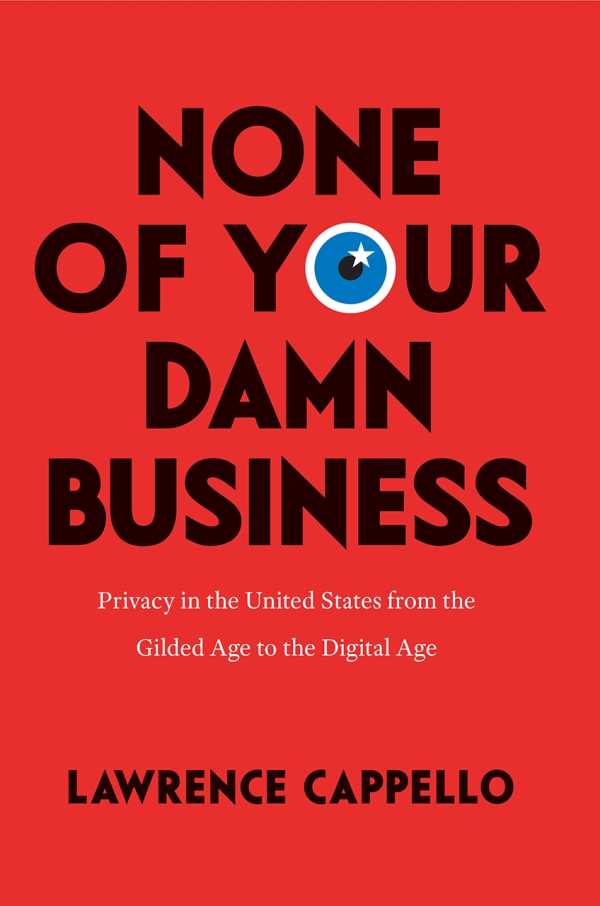None of Your Damn Business
Privacy in the United States from the Gilded Age to the Digital Age
In the internet age, struggles to protect personal privacy are all the more significant, claims Lawrence Cappello in None of Your Damn Business, a thorough account of privacy struggles that draws on deep research to reveal that the privacy dilemma dates back more than a century and has roiled American life through two world wars, the New Deal, the Cold War, and the post 9/11 era.
The book recounts several historical debates to illuminate how technology, legislation, judicial rulings, and public protests have determined often murky boundaries between citizens’ rights and government rule. Outcomes have tended to favor a government that has relied on domestic surveillance through wiretaps, bugs, and the collection of computer age “big data.” The book is especially effective at showing that the trampling of privacy rights paved the way for such abuses as the Japanese internment, McCarthyism, and Watergate.
A fascinating discussion of reproductive choice as determined by Griswold v. Connecticut (1965) and Roe v. Wade (1973) shows that those landmark judicial rulings for freedom of choice were grounded in women’s rights to privacy, recognizing the right not to have children and not to be constrained by rules determined by a white patriarchal society. Cappello also works toward a conclusion that contemporary privacy rights are abused with regularity by smartphone technology that allows anyone to be a photographer, the explosion of social media platforms that encourage self-proclaimed journalists to report their version of the news, and a new form of yellow journalism that panders to celebrity culture.
This rigorous investigation of the ongoing debate between privacy and the public right to know at times lapses into excessive detail, but None of Your Damn Business provides excellent background information for citizens concerned with the erosion of privacy rights, as well as for government officials and legal professionals positioned to act upon privacy laws that protect citizens while providing necessary oversight.
Reviewed by
Karl Helicher
Disclosure: This article is not an endorsement, but a review. The publisher of this book provided free copies of the book to have their book reviewed by a professional reviewer. No fee was paid by the publisher for this review. Foreword Reviews only recommends books that we love. Foreword Magazine, Inc. is disclosing this in accordance with the Federal Trade Commission’s 16 CFR, Part 255.

